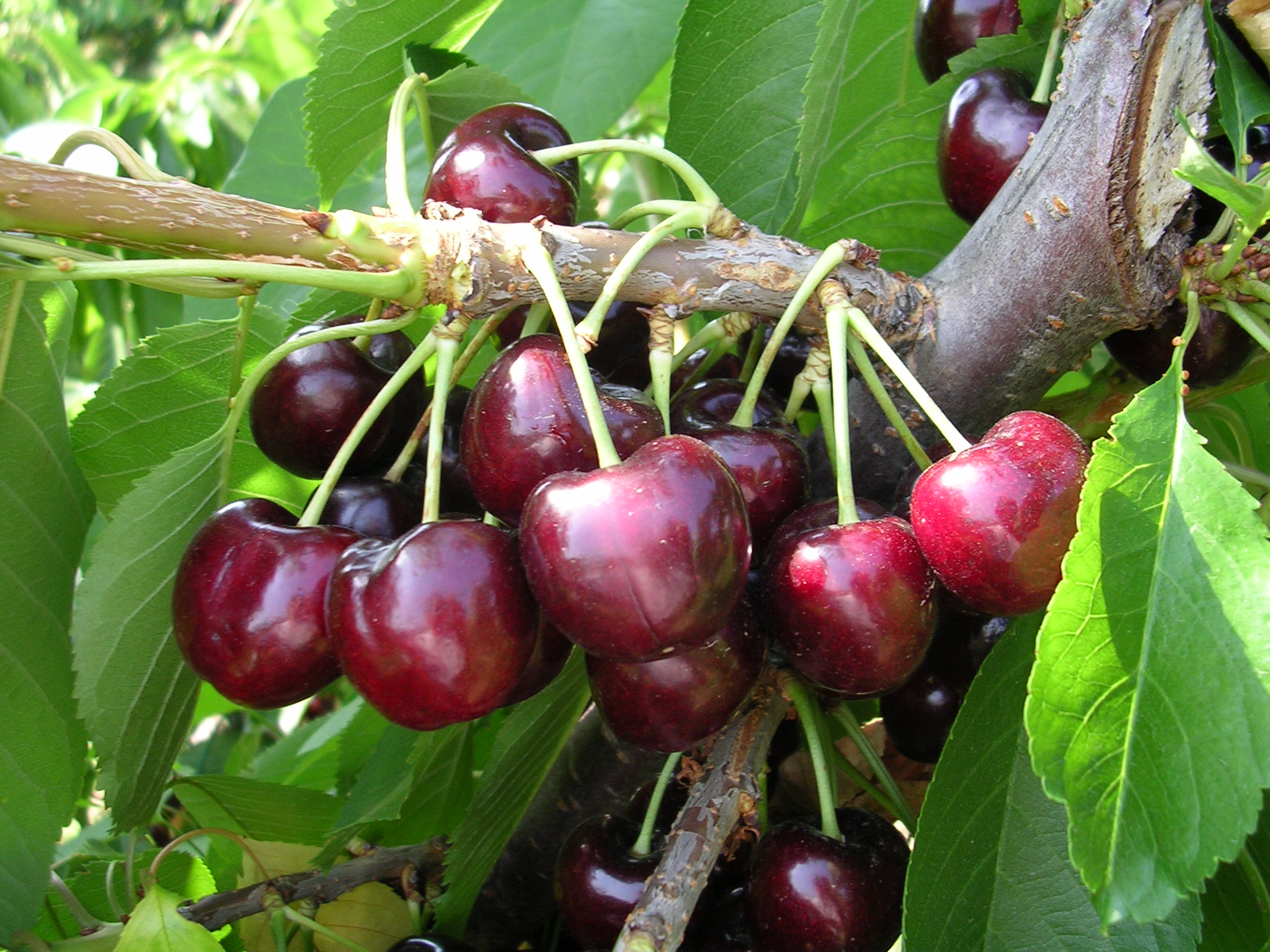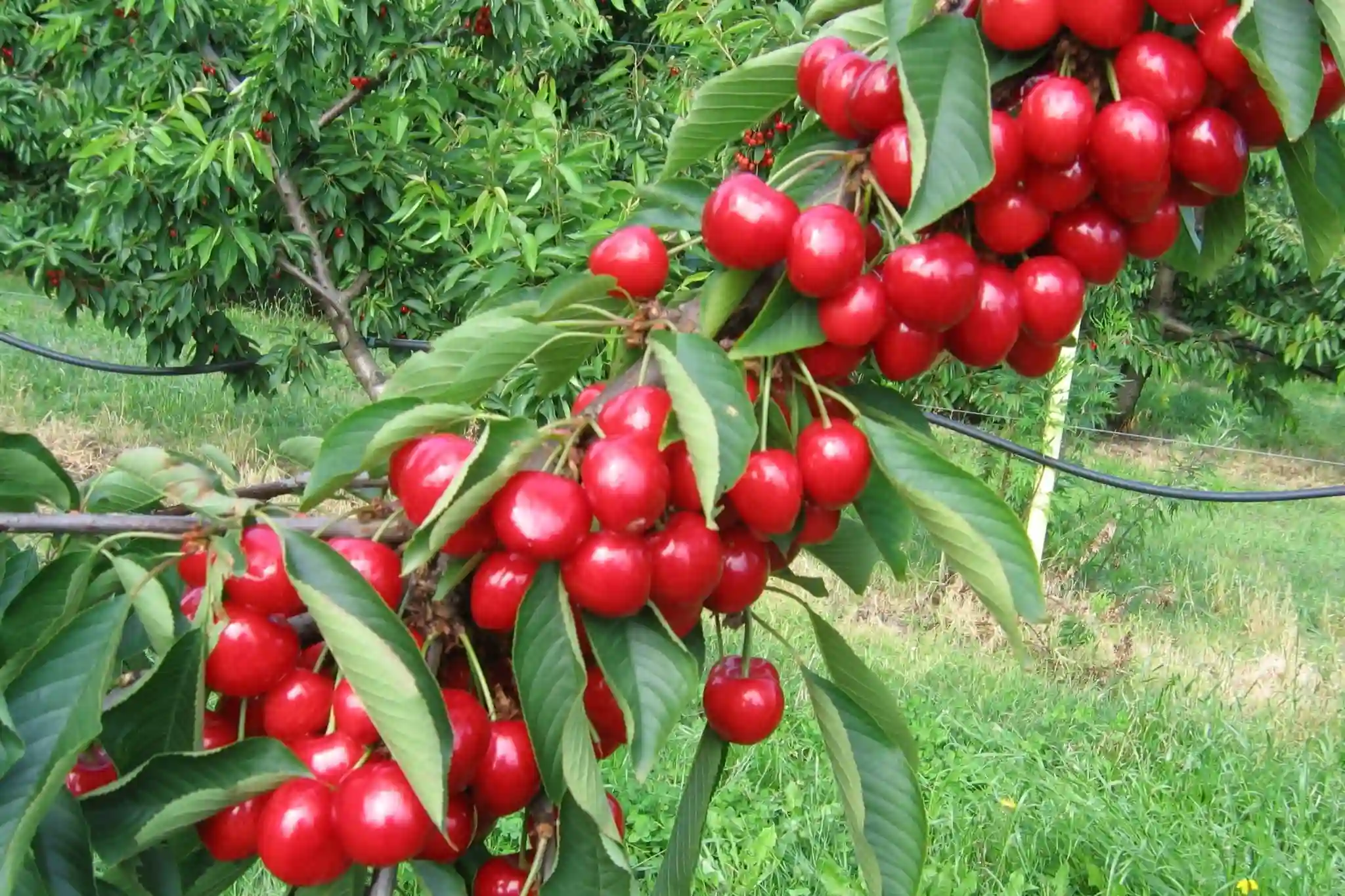Chile is one of the world’s largest sweet cherry producers. However, in recent years, cultivation challenges have increased due to frequent rain and frost during flowering and harvesting periods. As a result, the use of plastic covers in cherry cultivation has risen, although few studies have analyzed their impact on fruit quality.
The use of plastic covers modifies the orchard's microclimate and the agronomic practices to be applied, especially regarding pruning, irrigation, mineral nutrition, and thinning. In particular, attention should be paid to fruit load regulation. A recent study evaluated the effects of fruit load on quality parameters and antioxidant content in “Regina” cherries when cultivated under plastic covers in southern Chile.
The study examined four levels of fruit load: 100% (control), 80%, 60%, and 40%, over two consecutive seasons (2021/2022 and 2022/2023). The results showed that reducing the fruit load, especially in the 60% and 40% treatments, significantly improved cherries weight, size, and firmness (by 20.3%). However, the yield did not differ between treatments.
The cherries from trees with 100% and 80% fruit load had diameters between 24 and 28 mm, while those from the 60% and 40% reduced loads reached an average size of 30 mm. In terms of quality, total soluble solids (TSS) did not show significant variations across treatments. However, higher acidity (TA) was detected in the fruit from the 60% and 40% treatments compared to the control, a relevant factor that influences the perception of the fruit’s taste.

The firmness of the cherries, a key parameter for ensuring good post-harvest preservation, showed a marked improvement with reduced fruit load. The cherries demonstrated 39.4% higher firmness after storage. This is crucial for markets like China, where much of Chile’s cherry production is exported, as the cherries must endure long journeys in containers before reaching consumers.
One of the study’s objectives was also to assess the impact of fruit load on the fruit’s antioxidant parameters. Although quality generally improved with reduced load, no significant changes were detected in antioxidant activity (AA) and total phenols (TPHs). This suggests that, while certain parameters improved, fruit load does not directly impact antioxidant content.
Finally, the study concludes that regulating fruit load is an effective practice for improving the quality of “Regina” cherries cultivated under plastic covers. Reducing the number of fruits per plant, bigger cherries were obtained, heavier, and with superior firmness, while maintaining stable antioxidant levels.
The 60% fruit load treatment produced the most promising results. However, the authors recommend further studies to understand the molecular mechanisms behind these outcomes and to further improve cultivation techniques.
Source: González-Villagra, J.; Palacios-Peralta, C.; Muñoz-Alarcón, A.; Reyes-Díaz, M.; Osorio, P.; Ribera-Fonseca, A. Influence of Fruit Load Regulation on Harvest and Postharvest Fruit Quality and Antioxidant-Related Parameters in Sweet Cherry (Prunus avium L.) cv. Regina Cultivated under Plastic Covers in Southern Chile. Plants 2024, 13, 2257. https://doi.org/10.3390/plants13162257.
Images: SL Fruit Service
Andrea Giovannini
University of Bologna (IT)
Cherry Times - All rights reserved











